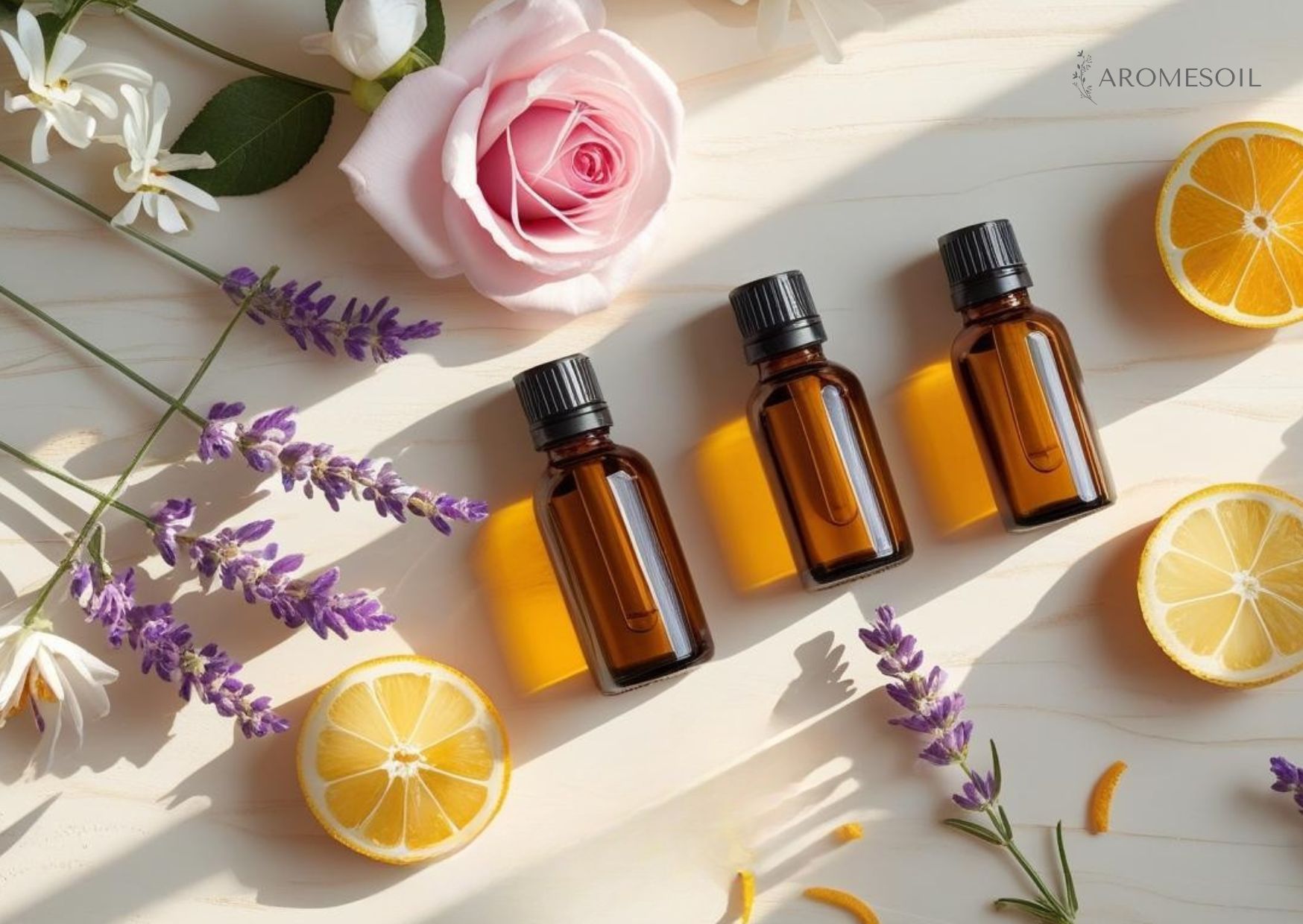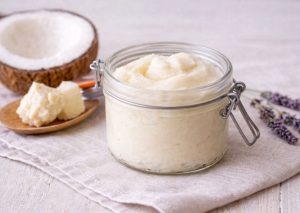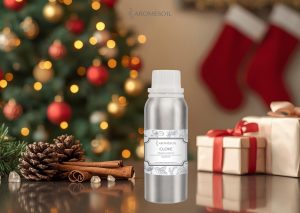Why try making perfume with essential oils without alcohol?
Making perfume with essential oils without alcohol is a gentle, skin-friendly alternative to traditional fragrances. Alcohol-based perfumes can sometimes cause dryness or irritation, especially for sensitive skin. An alcohol-free perfume made with natural ingredients is not only kinder to the skin but also offers a unique, personal scent that develops naturally on your body. It’s also a more sustainable and customizable option—perfect for anyone who enjoys crafting their own beauty products.
What you’ll need to make a DIY essential oil perfume
-
Best carrier oils for perfume
Carrier oils dilute essential oils, making them safe for skin application while helping the scent last longer. Popular choices include:
- Jojoba oil – lightweight, non-greasy, and closely resembles the skin’s natural oils.
- Sweet almond oil – nourishing and suitable for most skin types.
- Fractionated coconut oil – clear, odorless, and has a long shelf life.
-
Choosing high-quality essential oils
Select pure essential oils from reputable suppliers. Look for oils that have been distilled or cold-pressed without synthetic additives. Quality directly impacts both the scent and safety of your perfume.
-
Other tools and materials (bottles, droppers, labels)
- Glass roller bottles (10 ml or 15 ml) – protect the blend from light and maintain freshness.
- Glass droppers or pipettes – for precise measuring.
- Labels – to record the blend name and date of creation.
Steps to make alcohol-free perfume:
-
Choose a carrier oil:
Select your preferred base oil, such as jojoba or sweet almond, according to your skin type and scent preference.
-
Select your essential oils:
Pick top, middle, and base notes for a balanced fragrance. Example:
- Top note: bergamot, lemon, grapefruit.
- Middle note: lavender, geranium, ylang-ylang.
- Base note: vanilla, sandalwood, patchouli.
-
Create your blend:
Start by adding your chosen essential oils into a small glass container. A common ratio for a 10 ml perfume is 10–15 drops total of essential oils.
-
Add the carrier oil:
Fill the rest of the bottle with your chosen carrier oil, leaving a small gap at the top.
-
Blend and let it sit:
Gently shake the bottle to mix the oils. Let the perfume rest for at least 48 hours (ideally 1–2 weeks) so the scent can fully develop.
-
Test and adjust:
After resting, test the perfume on your skin. If needed, add a few more drops of any note to adjust the balance.
Best essential oil combinations for perfume
- Citrus floral: bergamot + lavender + sandalwood
- Sweet and warm: vanilla + orange + patchouli
- Fresh and herbal: peppermint + rosemary + lemon
- Romantic floral: rose + ylang-ylang + cedarwood
How to store and use your alcohol-free perfume
Keep your perfume in a dark glass bottle, away from direct sunlight and heat. Store it in a cool, dry place. Apply it to pulse points (wrists, neck, behind ears) for the best scent release.
Common mistakes to avoid when make perfume with essential oils
- Using too much essential oil, which can cause skin sensitivity.
- Choosing low-quality or synthetic oils, which may affect scent and safety.
- Skipping the resting period, resulting in a less balanced fragrance.
- Using plastic containers, which can degrade with essential oils over time.
Frequently asked questions
What is the best carrier oil for perfume?
Jojoba oil is often considered the best choice because it’s stable, non-greasy, and closely matches skin’s natural oils.
Can you make perfume with only essential oils?
Pure essential oils are too concentrated to be applied directly to skin. Always dilute them with a carrier oil.
What holds essential oil smell longest?
Base notes like sandalwood, patchouli, and vanilla help anchor a scent, making it last longer.
What can I mix with essential oils to make perfume?
You can mix essential oils with carrier oils like jojoba, fractionated coconut, or sweet almond to create a safe, alcohol-free perfume.
How long does an alcohol-free perfume last?
If stored properly, alcohol-free perfumes can last 6–12 months. The scent may evolve over time.
Create your own signature scent with Aromesoil
Making perfume with essential oils at home is a creative and rewarding process. With high-quality ingredients and a little patience, you can craft a scent that’s truly yours—one that’s natural, skin-friendly, and unique.



